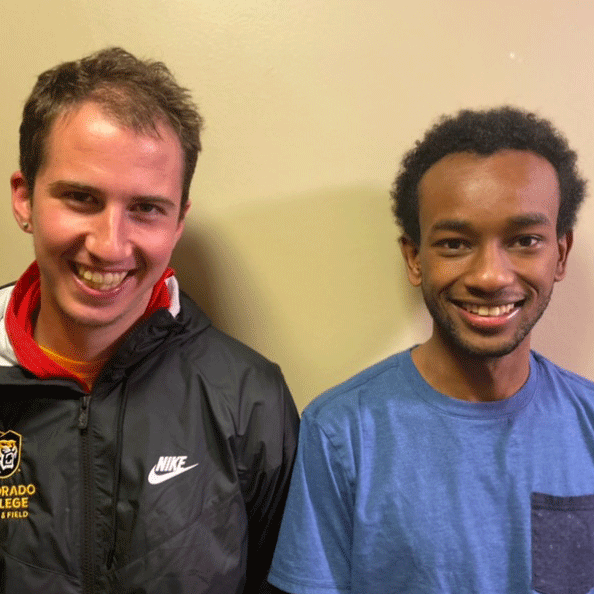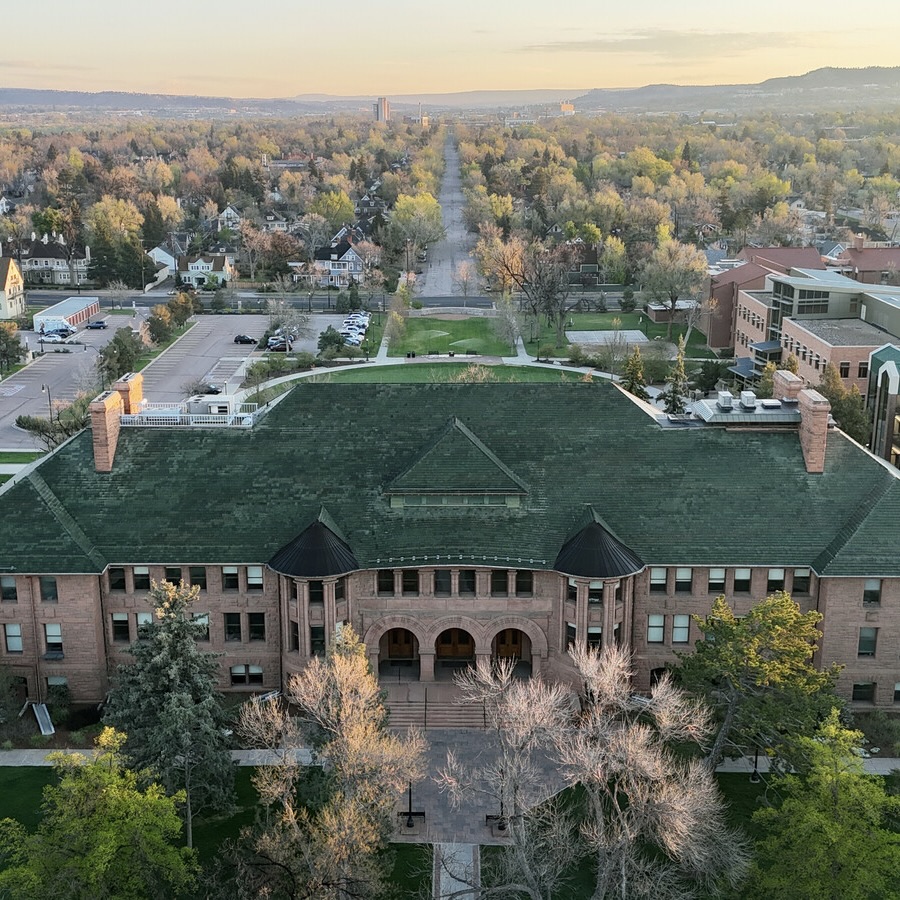Colorado College students Ben Gellman ’22 and Deksyos Damtew ’22 have been awarded a Davis Projects for Peace award for their project, “Cultivating Youth Advocacy: Civics Education in Colorado.” This is the 15th consecutive year a CC project has been funded.
In their proposal, the two define civics education as the “study of the rights and obligations of citizens in society,” and maintain that civic education has been systematically eliminated since federal and state funding has decreased.
A strong civics education helps students “understand public issues, view political engagement as a means of addressing communal challenges, and participate in civic activities,” they write. “However, students with inadequate civics education are less likely to participate in community service, face higher dropout rates, and are less likely to engage in the democratic process.
The two will use the $10,000 award to take their project to schools in an urban area, Colorado Springs, and a rural area, Bayfield, located in southwest Colorado between Durango and Pagosa Springs. They will conduct a series of three workshops for 10-30 students, replicated in both locations, with each workshop focusing on one of the three co-equal branches of government: legislative, executive, and judicial.
The Collaborative for Community Engagement, which oversees CC’s Davis Projects for Peace proposal and recommendation process, notes that having a project receive funding is not guaranteed, so CC’s record speaks to the thoughtfulness, ingenuity, passion, and care Colorado College students have in making the world better for others.
“We are thrilled this project is locally rooted, and that these students have thoughtfully identified ways to invest in peacebuilding and addressing the roots causes of conflict and division in Colorado,” says Jordan Travis Radke, director of the Collaborative for Community Engagement. “This is the first Colorado project funded in CC’s history with the Davis Projects, and only the second domestic project.”
In their proposal, Damtew and Gellman noted they have observed first-hand the need and desire for better civics education from students.
“I am excited to work on this project because it is a good opportunity to work on the practical application of civics education,” says Gellman, a history major from Greencastle, Indiana. “I think we often talk about the practical applications of subjects like math and science, but neglect to talk about how we can use our knowledge about history and government to be more engaged citizens.”
Gellman worked as a Public Achievement coach at North Middle School in Colorado Springs during his first two years at CC. He also spent several weeks during the summer living with two educators in Bayfield, who expressed a desire to promote civics education programming for students in rural areas such as their community. Gellman and Damtew’s proposal cites research shows that 60% of students in rural areas live in “civic deserts” — communities where there are few or no opportunities to learn about policy and governance, and to participate in activism.
“I think the opportunity for students from Colorado Springs and Bayfield to engage in dialogue with each other will also help students to connect with their peers who come from different backgrounds,” says Gellman.
Damtew, an international political economy major from Denver, interned at the Colorado Court of Appeals, working closely with the organization Our Courts. Two years ago, while taking a CC class on multicultural education, he met with students at Mitchell High School. There, a student mentioned wanting to discuss politics in the classroom, saying she found few places to explore the importance of community-engaged research — an application of civics education that uses public problem-solving to produce knowledge relevant to social change. Damtew and Gellman spoke with others and learned that the problem was not unique to that school, but rather a reflection of the systemic elimination of civics education in the country.
Damtew, captain of CC’s speech and debate team, started his own virtual speech and debate camp last year to make high school speech and debate more accessible. “After the camp, I learned from students that their biggest takeaway was not the fundamentals of debate, but rather the importance of being an engaged citizen. Public speaking has been my platform to find my voice and engage in my community. This project serves as a way for me to bridge my passion for public advocacy and working with high school students.”
Both Damtew and Gellman are interested in pursuing careers in public interest law, so they have a personal interest in improving civics education in the United States.






